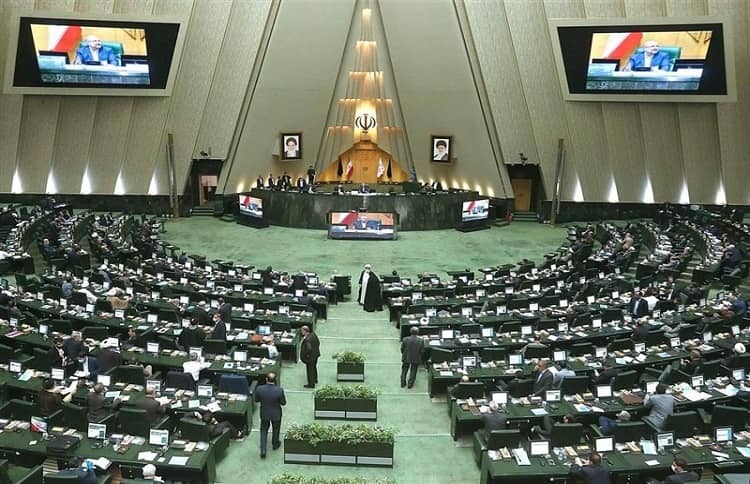
By Jubin Katiraie
The line of construction credits of Iran’s parliament, which entered the budget in the 2000s, has many words and sayings.
Right from the beginning of the construction of the ‘pyramid parliament,’ the construction budget was extended to the budget lines of the Iranian parliament, and it is said that this money will be spent on building an organizational house for Members of Parliament, helicopter landing pads, clinics, and so on. This budget as it is said is 41 billion Tomans.
In such circumstances, and according to the news that is also raised in the field of corruption in the constructions of the parliament, various questions are formed in the mind. First, when will these constructions end? Why does the government consider a construction budget for the parliament every year? In a situation where the construction of an organizational house is also prohibited by law for government personnel, do the lawmakers still receive funding for it? Is there a private clinic for MPs?
Since the number of MPs is 290, and even if we accept that the number of MPs increases in proportion to the population every four years, after three decades, a house should have been built for all MPs, but why does the parliament not stop to receive the construction budget?
In the Sohanak project, which was supposed to provide housing for MPs, many MPs have sold their concessions to various people outside the parliament, and as a result, there are creditors from various parts of the society in the project.
Here again, unanswered questions are raised. Does the parliament spend its construction budget on participating in construction projects to housing MPs? While the law on the construction of organizational houses has stopped for the staff of most government agencies, the parliament continues to build organizational houses?
Parliament’s involvement in the government budget bill
In the first decade after the revolution, the parliament had no development budget at all. The construction budget of the parliament in 2019 was 480 billion rials (48 billion tomans), which has decreased to 410 billion rials (41 billion tomans) this year. Meanwhile, the current budget of the parliament has increased. The current budget of the parliament was 494 billion Tomans last year, which reached 571 billion Tomans in this year.
While the figure provided for in the government bill was 501 billion tomans, the parliament has increased its budget by 70 billion tomans.
Mehdi Pazuki, an economic expert affiliated to the government, said: “The parliament has had a development budget for several decades. 41 billion tomans (construction budget of 2019) is a lot of money. In my opinion, if they had built an office for 290 representatives and all 290 people had apartments, by now this process would have been over. In my opinion, the parliament should start the culture of contentment from itself. If the parliament starts from itself, it can stop the other executive apparatuses. The bigger they become, the worse the national economy is. The parliament had bought many houses on Khomeini Street, which I think should sell all of them. When the parliament itself is splurging, it cannot expect from other frugality.”
Hemmat Gholizadeh, another economic expert affiliated to the government, said: “From 1995 or 1996 when the construction of the parliament began, the constructions of the parliament have continued until now. They have been receiving construction budgets for about 23 to 24 years. They do not want to do anything special, they should just demolish the old houses of the deputies and built new housing for them.”
Comparing the construction budget of the Iranian parliament with other countries in the world, Gholizadeh says: “Look how close to each other the representatives in the British parliament sit, but in Iran, the parliament follows large constructions. Parliament does not need this size. Widespread corruption has occurred because there is no proper oversight in this regard and the issues are in their own hands. The number of representatives has not changed compared to 30 years ago. Recently they are planning to build a meeting building, this is a remake and wasting. They have built all kinds of helicopter pads, hospitals, libraries, etc. While all these facilities are close to the parliament.”
Imposing costs on the general budget of the country
Parliament credits are not limited to the credit lines written in the budget law. According to Mehdi Pazuki, the figures received by the parliament are higher than the figures in the documents.
He said: “Each representative can appoint five members of the government body according to the law they have passed, but the parliament does not pay the salaries, overtime, and welfare of these people, but these amounts are paid in full by the executive body. These are the costs incurred by the government. About more than a thousand people are commissioned by members of the executive branch at the request of members of parliament and receive their salaries from the government, and these figures do not appear in the parliament’s budget.”
Read More:


